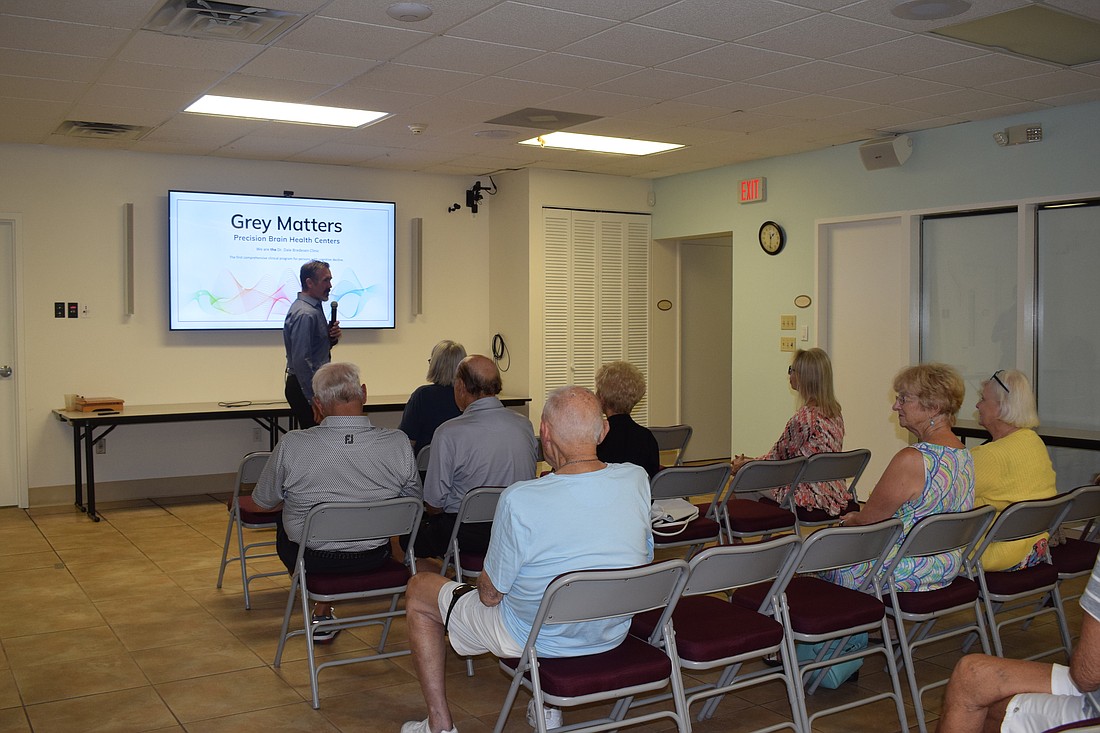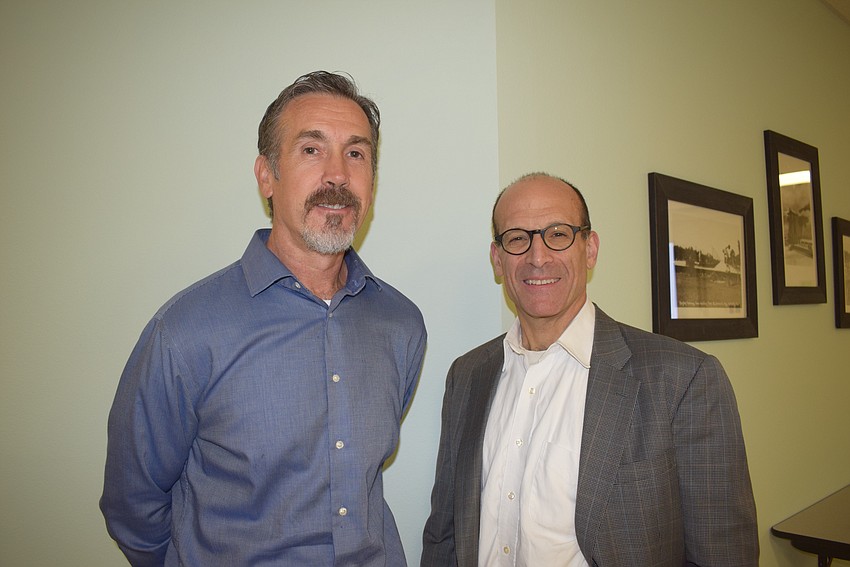- May 23, 2025
-
-
Loading

Loading

Grey Matters Precision Brain Health Center of Sarasota held a presentation on July 28 at St. Armands Key Lutheran Church. Dr. William Nields gave the presentation focusing on uncovering the root causes of cognitive decline and how to prevent it.
“We are using a sort of holistic functional medicine protocol,” said Nields. “We work on preventing cognitive decline before it happens. Even if cognitive decline starts to happen, we can improve that function down to the root cause.”
Grey Matters Precision Brain Health Center is based on the research of Dr. Dale Bredesen. He wrote “The End of Alzheimer’s,” which made it onto the New York Times Best Seller list.
“He was invited on 'Good Morning America,'” said Nields. “And he made a very bold statement. He says Alzheimer's is reversible. This caused a controversial firestorm, because every good scientist and every good academic institution knows there is no cure yet.”
He explained that Bredesen’s work is very new and goes against the norm of the typical single cure for an illness. Nields said that previous research didn't focus on that Alzheimer’s is a complex disease that affects more than one aspect of life. Therefore, there are multiple steps that need to be taken to prevent or reverse cognitive decline rather than having one straightforward cure.
“This Alzheimer's disease is not a single problem,” said Nields. “It's more like a roof with multiple holes. They found that if you fix enough of these holes, enough of these problems, people will get better."
According to Grey Matters, some risk factors and toxins that cause cognitive decline include insulin resistance, sleep apnea, mold exposure, COVID-19, low Vitamin D, gum disease, vascular disease and a leaky gut.
In 2018, Bredesen published a clinical trial using his protocol in the Journal of Alzheimer’s Disease in which improved cognitive testing was seen in 84% of the trial patients, who were in late stages of dementia.

In his presentation, Nields highlights that the Bredesen Protocol identifies various subtypes of Alzheimer’s disease and addresses the individual with a personalized plan. Plans from this protocol are based on four categories: the root cause, diet, lifestyle and supplements.
Nields emphasized that maintaining a healthy lifestyle is a proven method to prevent cognitive decline. Focusing on people’s diet, exercise, sleep habits and daily activities matters, especially during retirement.
Practical tips Nields mentioned are going to a doctor if you snore or bleed when you floss, eating lots of fiber and colorful fruits and vegetables, incorporating exercise that uses both the brain and the body and getting good sleep.
Nields said that as people get older it's important to prioritize doing challenging activities to keep the brain active. “Brain fitness,” as Nields called it, will keep building the neurons needed to keep the mind sharp. He recommended an app called Brain HQ that has challenging puzzle games. He said playing them for 30 minutes three times a week will be a benefit. Playing games like canasta or bridge can have the same effect.
Nields said the center's methods have helped reverse cognitive decline in people in early stages of dementia. Beth Jones came to the presentation and said that her mother has been doing the protocol for about 10 weeks. She has already seen an improvement in her mother’s cognitive skills.
“Recently she got dropped off at the wrong place,” said Jones. “In the past, she wouldn't have even gone to text me. She would have just sat there. And she found it on her own. When we got there, she was grumpy. And I'm like, ‘Mom, you just found this place by yourself.’ Three years ago, two years ago, she would have never been able to do that.”